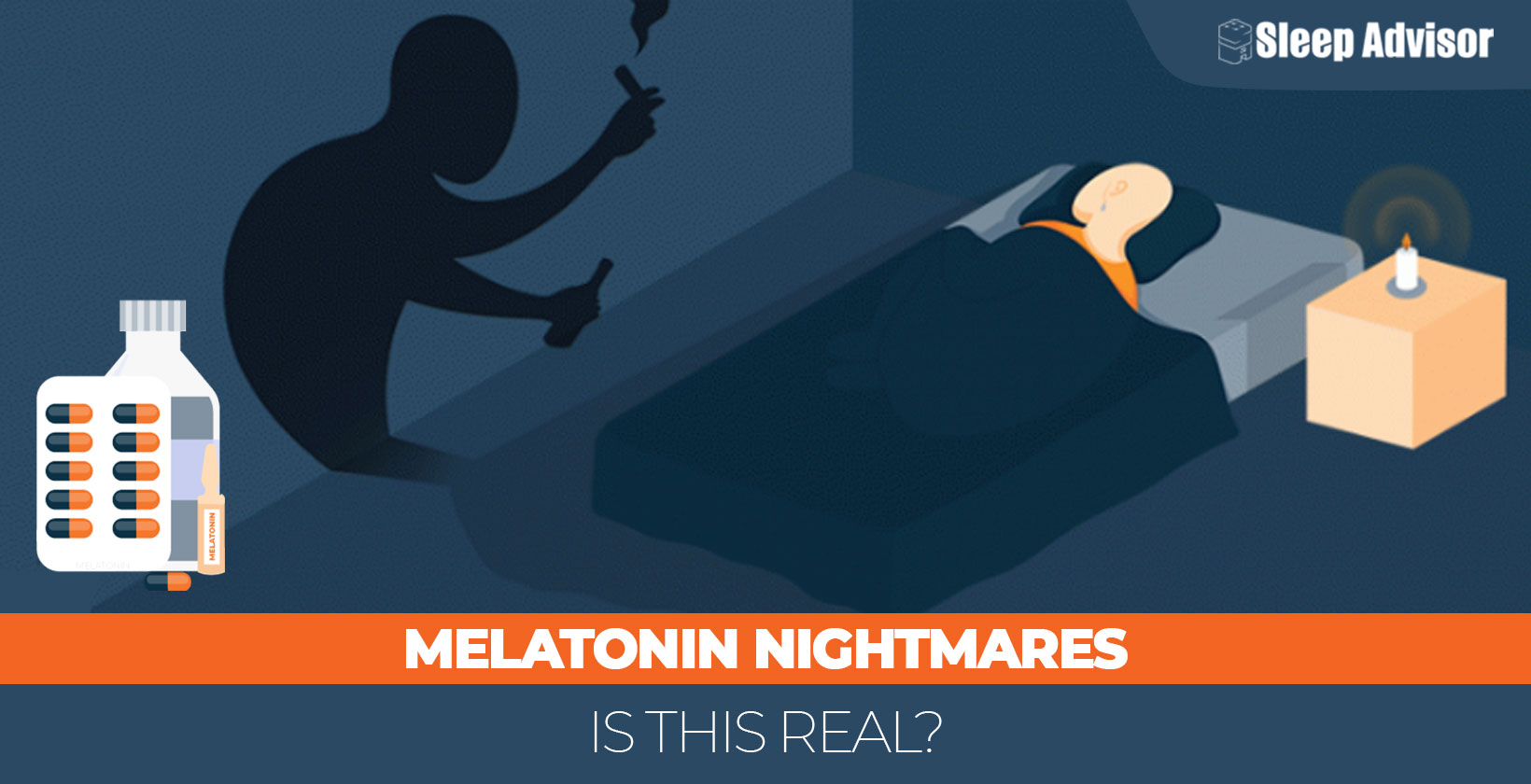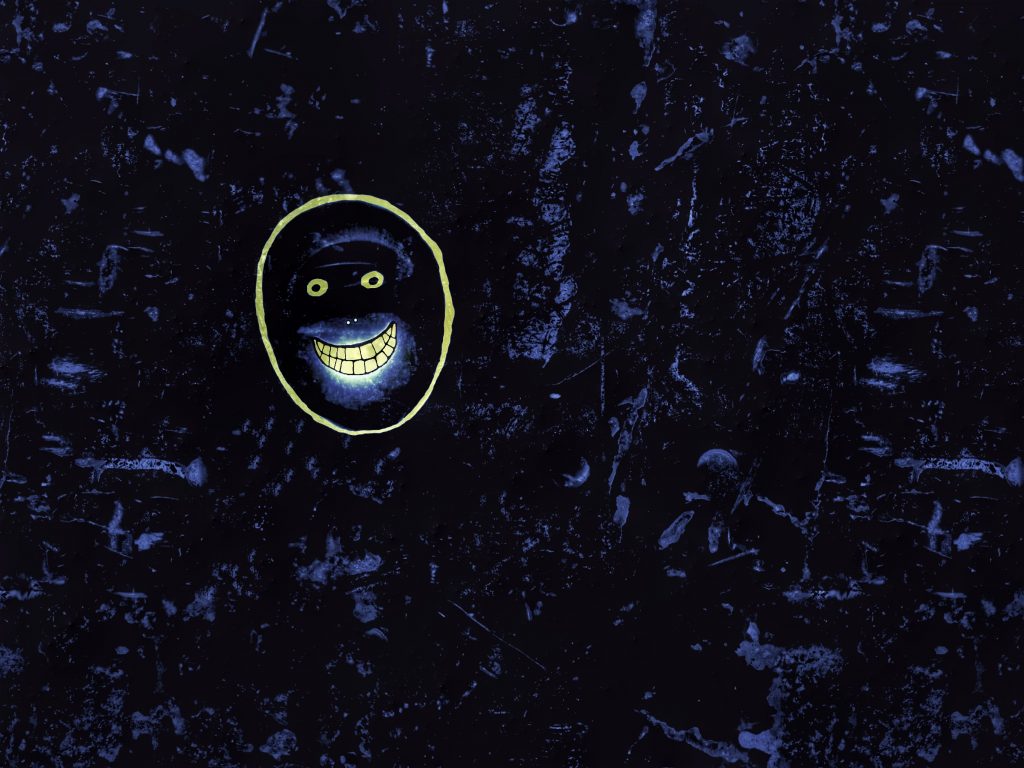Melatonin Nightmares: The Surprising Truth You Need To Know
Have you ever popped a melatonin supplement hoping for a peaceful night's sleep, only to wake up feeling like you've been dragged through a horror movie? It's not just you. Thousands of people worldwide are reporting vivid, sometimes downright terrifying dreams after taking melatonin. If you're scratching your head wondering why this happens, you're in the right place. We're diving deep into the science behind melatonin nightmares and how you can manage them.
Melatonin is often hailed as the ultimate sleep aid, but its darker side isn't talked about enough. While it helps regulate your sleep-wake cycle, it can also throw your dreams into overdrive. In this article, we’ll uncover why melatonin might be the reason behind those unsettling dreams and what you can do about it.
Before we dive in, let me tell you something important: you’re not alone. Many people who use melatonin experience vivid dreams or even nightmares. But don’t worry, we’ve got all the answers you need. Let’s break it down step by step so you can sleep soundly—and dream peacefully—once again.
- Charlies Angels 2 A Sequel That Fans Have Been Waiting For
- Neil Flynn The Heart And Soul Of Hollywoods Beloved Characters
What is Melatonin, Anyway?
Melatonin is a hormone naturally produced by your brain's pineal gland. It plays a crucial role in regulating your sleep-wake cycle, also known as your circadian rhythm. Your body typically ramps up melatonin production as night falls, signaling that it's time to wind down and prepare for sleep. But here's the thing—sometimes, our natural melatonin production gets disrupted. This could be due to factors like jet lag, shift work, or simply staying up too late scrolling through social media.
When your natural melatonin production goes haywire, taking a melatonin supplement can help reset your internal clock. However, not all melatonin experiences are created equal. While some people report feeling refreshed after taking it, others wake up feeling like they've just escaped a Stephen King novel. So, what gives?
Why Does Melatonin Cause Nightmares?
Now, let's get into the nitty-gritty of why melatonin might be turning your dreams into a horror show. When you take melatonin, it doesn't just help you fall asleep faster—it also increases the intensity of your REM (Rapid Eye Movement) sleep. REM sleep is the stage where most dreaming occurs, and when this stage is amplified, your dreams can become more vivid and sometimes even disturbing.
- Accordion Hurricane Shutters Cost A Comprehensive Guide To Protect Your Home
- Tom Segura Controversy The Unfiltered Story Behind The Comedians Most Explosive Moments
Think of it like turning up the volume on your dreams. While some people enjoy the wild ride that comes with heightened REM activity, others find themselves trapped in nightmare territory. It's like watching a movie where the special effects are turned up to 11—sometimes it's thrilling, but other times it's just plain scary.
The Science Behind Melatonin Nightmares
So, what’s really going on in your brain when you take melatonin? Let's break it down. Melatonin supplements increase the duration and intensity of REM sleep. During REM sleep, your brain is highly active, almost as if you're awake. This heightened brain activity can lead to more vivid and sometimes bizarre dreams. For some people, these dreams can cross the line into nightmare territory.
Research suggests that melatonin might also affect the way your brain processes emotions during sleep. This could explain why some people experience unsettling or even frightening dreams after taking it. It's like your brain is on overdrive, processing everything at once, and sometimes it gets a little… creative.
Key Factors That Influence Melatonin-Induced Nightmares
Not everyone who takes melatonin experiences nightmares. So, what makes some people more prone to these unsettling dreams? Here are a few factors that might play a role:
- Dosage: Taking too much melatonin can amplify its effects, including the intensity of your dreams.
- Individual Sensitivity: Everyone's brain chemistry is different. Some people are simply more sensitive to the effects of melatonin.
- Underlying Sleep Disorders: If you have an underlying sleep disorder, such as sleep apnea or restless leg syndrome, melatonin might exacerbate your symptoms.
- Mental Health Conditions: People with anxiety or depression might be more likely to experience nightmares after taking melatonin.
How Common Are Melatonin Nightmares?
You might be wondering how common melatonin nightmares really are. The truth is, it's hard to pinpoint an exact number because everyone's experience is different. However, studies suggest that up to 10% of people who take melatonin report experiencing vivid dreams or nightmares. While that might not sound like a lot, it still means millions of people worldwide are dealing with this issue.
What's even more interesting is that the prevalence of melatonin nightmares seems to be on the rise. As more people turn to supplements to combat sleep issues, reports of unsettling dreams are becoming more frequent. It's a double-edged sword—melatonin helps you sleep, but it might also give you a few sleepless nights when those nightmares kick in.
Can You Prevent Melatonin Nightmares?
If you're tired of waking up in a cold sweat after taking melatonin, there are a few things you can do to minimize the chances of nightmares. Here are some tips to help you sleep soundly without the horror show:
- Start with a Lower Dose: Begin with the smallest effective dose of melatonin. This can help reduce the intensity of your dreams.
- Stick to a Routine: Go to bed and wake up at the same time every day to regulate your circadian rhythm naturally.
- Avoid Screens Before Bed: Blue light from screens can interfere with your natural melatonin production, making it harder to fall asleep.
- Practice Relaxation Techniques: Activities like meditation or deep breathing can help calm your mind before bed, reducing the likelihood of nightmares.
When Should You See a Doctor?
While occasional nightmares aren't usually a cause for concern, persistent or severe nightmares might be a sign of an underlying issue. If you're experiencing frequent nightmares or they're affecting your quality of life, it's a good idea to consult a healthcare professional. They can help determine if there's an underlying sleep disorder or mental health condition that needs to be addressed.
What Are the Alternatives to Melatonin?
If melatonin nightmares are becoming a regular occurrence, you might be wondering if there are other options for improving your sleep. The good news is, there are plenty of alternatives to consider:
- Valerian Root: This herbal supplement is often used as a natural sleep aid and is less likely to cause vivid dreams.
- Magnesium: Known as the "relaxation mineral," magnesium can help promote restful sleep without the side effects of melatonin.
- Lavender: This soothing herb has been shown to improve sleep quality and reduce anxiety.
- CBT for Insomnia: Cognitive Behavioral Therapy for Insomnia is a highly effective treatment that addresses the root causes of sleep issues.
Understanding the Role of Sleep Hygiene
Sleep hygiene refers to the habits and practices that promote good sleep quality. While melatonin can be a helpful tool, it's not a substitute for good sleep hygiene. Here are a few tips to help you establish a solid sleep routine:
- Create a Sleep-Friendly Environment: Keep your bedroom cool, dark, and quiet to create the perfect conditions for sleep.
- Avoid Stimulants: Stay away from caffeine and nicotine in the hours leading up to bedtime.
- Exercise Regularly: Physical activity can help improve sleep quality, but try to avoid vigorous exercise too close to bedtime.
- Limit Naps: While short naps can be refreshing, long or late afternoon naps can interfere with your nighttime sleep.
How Sleep Hygiene Can Help Reduce Nightmares
Establishing good sleep hygiene practices can help reduce the frequency and intensity of nightmares. When your body and mind are well-rested, you're less likely to experience unsettling dreams. Think of it like giving your brain a break—it's easier to process emotions and experiences when you're well-rested.
Final Thoughts: Sleep Soundly, Dream Peacefully
Melatonin can be a game-changer for people struggling with sleep issues, but its potential to cause nightmares shouldn't be ignored. By understanding how melatonin affects your sleep and dreams, you can take steps to minimize its side effects. Whether it's adjusting your dosage, practicing good sleep hygiene, or exploring alternative sleep aids, there are plenty of ways to ensure you get the restful sleep you deserve.
So, the next time you reach for that melatonin supplement, remember to take it with caution. And if those nightmares do strike, don't hesitate to reach out for help. Your sleep is important, and there are solutions to help you sleep soundly and dream peacefully.
Got any questions or experiences to share about melatonin nightmares? Drop a comment below and let's chat. And don't forget to share this article with anyone who might find it helpful!
Table of Contents
- What is Melatonin, Anyway?
- Why Does Melatonin Cause Nightmares?
- The Science Behind Melatonin Nightmares
- Key Factors That Influence Melatonin-Induced Nightmares
- How Common Are Melatonin Nightmares?
- Can You Prevent Melatonin Nightmares?
- When Should You See a Doctor?
- What Are the Alternatives to Melatonin?
- Understanding the Role of Sleep Hygiene
- Final Thoughts
- Why Your Pilot Light Water Heater Keeps Going Out Ndash A Comprehensive Guide
- Side Porch On House The Ultimate Guide To Enhancing Your Homes Charm

Can Melatonin Cause Nightmares? (2024) Sleep Advisor

Stream Melatonin Nightmares by Swollen Eye Listen online for free on

Do Melatonin Dreams and Melatonin Nightmares Really Occur